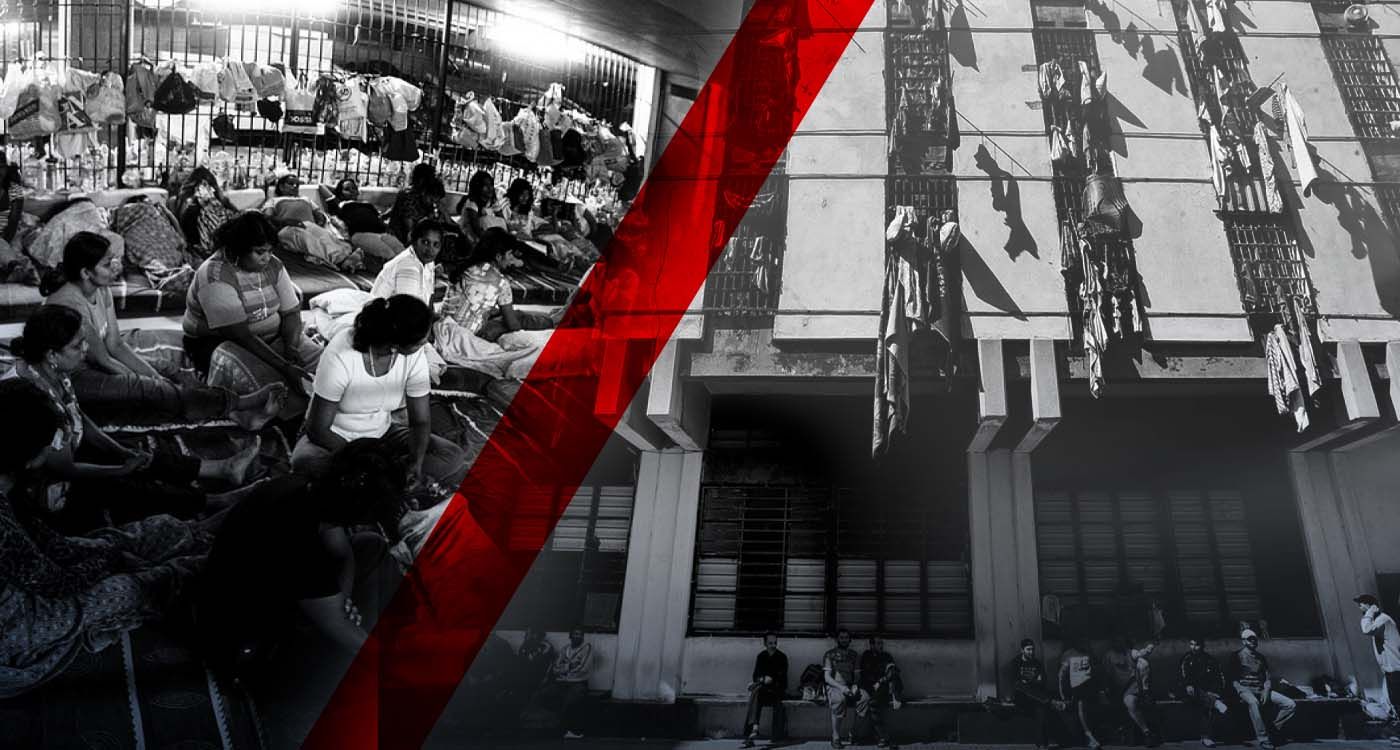
Stepping into Roumieh Prison in Matn, one might mistake it for a transit camp rather than a facility meant to enforce sentences. Built to hold 1,000 to 1,200 inmates, it now houses nearly 4,000 - more than triple its intended capacity.
The national situation is equally grim. Human Rights Watch reports that Lebanon’s prison system officially has about 4,760 places for nearly 8,500 inmates as of August 2023. A more recent assessment by the Lebanese National Human Rights Commission (LNHRC) indicates that by the end of 2023, central prisons, regional centers and courthouse cells could accommodate roughly 3,000 inmates, while the actual prison population exceeded 7,800.
Even more alarming, nearly 83% of detainees remain in pretrial detention without a final judgment, according to data from 2024-2025. This chronic imbalance underscores the slow pace of an overburdened judicial system struggling to keep up with the rate of arrests.
Prison Conditions
The consequences of severe overcrowding are dire. Amnesty International reports a sharp decline in the budget for prison medical care. The real value of the Ministry of Interior’s allocation fell from $7.3 million in 2019 to just $628,000 in 2022, largely due to the devaluation of the Lebanese pound.
Food and hygiene have also been badly affected by Lebanon’s ongoing economic crisis. The state struggles to pay suppliers, while prisoners’ families, themselves facing poverty, can no longer provide for their incarcerated relatives.
At Roumieh, the epicenter of this crisis, inmates sleep on the floor or share cells meant for a single person. Sunlight is scarce, medical care is often delayed and multiple organizations have described the living conditions as “inhumane.”
The Root Causes of a Vicious Cycle
Lebanon’s prison crisis is fueled by more than rising arrests. It stems from a combination of interlinked factors.
The slow pace of the judicial system is a major contributor. At Roumieh, of the 3,619 inmates recorded at the end of 2024, 2,850 had yet to face trial, according to the Beirut Bar Association (BBA). Hearings are frequently postponed, prisoner transport is limited by shortages of vehicles and fuel, and repeated strikes by judges and lawyers have further worsened the backlog.
The high number of foreign detainees adds further pressure. Nearly half of the 8,402 inmates recorded nationwide in 2024 were foreigners, including 2,572 Syrians and 563 Palestinians.
Unrealized Paths for Action
Despite the urgency of the crisis, proposed solutions remain largely unimplemented. The BBA has called for faster trials and alternatives to incarceration for minor offenses, such as house arrest, suspended sentences or fines. Others advocate building new facilities or rehabilitating existing ones, including the Warwar rehabilitation center inaugurated in May 2025 in Baabda.
Improving detention conditions is equally critical. Prisoners must have access to basic healthcare, adequate nutrition and humane living conditions.
The issue of foreign detainees could be partially addressed through regulated repatriation. Negotiations are ongoing regarding the transfer of Syrian prisoners from Lebanon to Syria, particularly following the fall of Bashar al-Assad’s regime in December 2024.
Often overlooked in public debate, Lebanon’s prison crisis is a ticking social time bomb. When the country’s largest prison operates at 360% capacity, when over 80% of inmates have not been tried, and when access to healthcare and food has become a privilege, this is no longer merely a management issue. It is a pressing humanitarian emergency at the heart of an already fragile state.




Comments